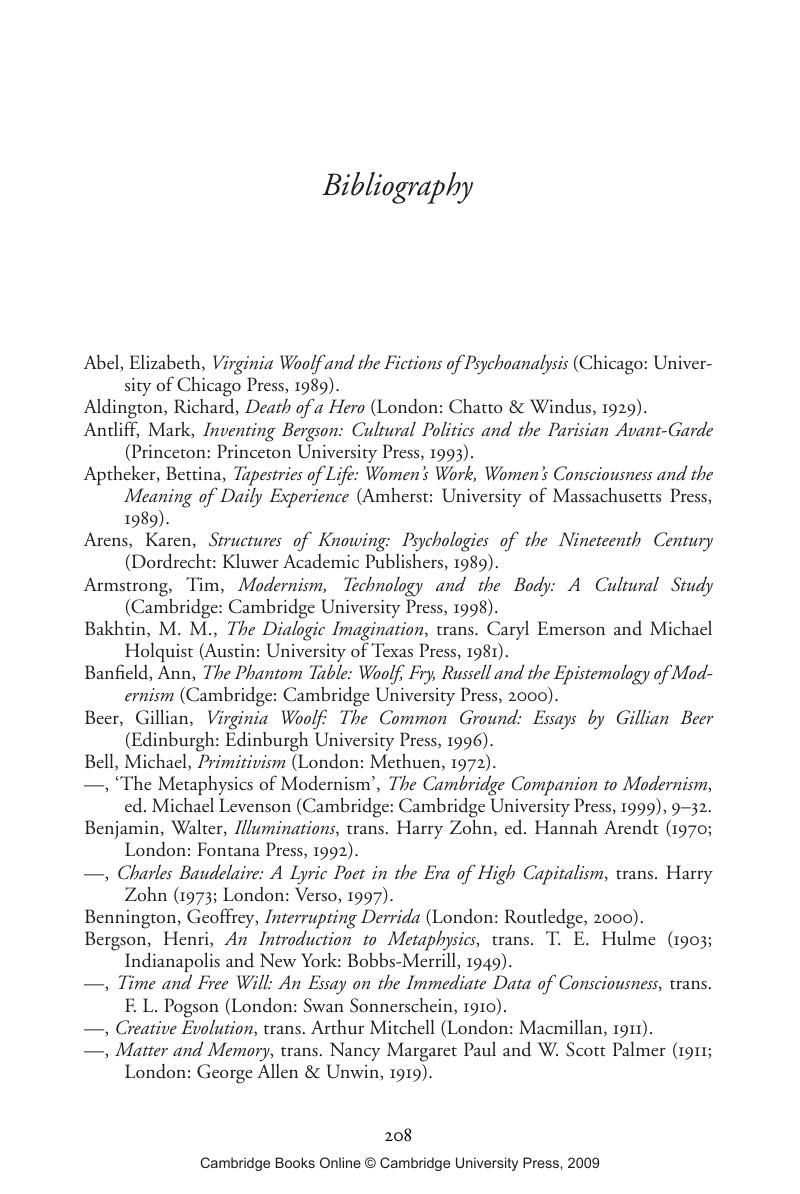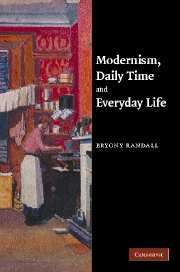Book contents
- Frontmatter
- Contents
- Acknowledgements
- List of abbreviations
- Introduction: dailiness
- Chapter 1 The contemporary context: Henri Bergson and William James
- Chapter 2 Dailiness in Dorothy Richardson's Pilgrimage
- Chapter 3 Re-creation, work and the everyday in Gertrude Stein
- Chapter 4 War-days: H.D., time and the First World War
- Chapter 5 Reading, writing and thinking: a Woolfian daily life
- Afterword
- Notes
- Bibliography
- Index
- References
Bibliography
Published online by Cambridge University Press: 22 September 2009
- Frontmatter
- Contents
- Acknowledgements
- List of abbreviations
- Introduction: dailiness
- Chapter 1 The contemporary context: Henri Bergson and William James
- Chapter 2 Dailiness in Dorothy Richardson's Pilgrimage
- Chapter 3 Re-creation, work and the everyday in Gertrude Stein
- Chapter 4 War-days: H.D., time and the First World War
- Chapter 5 Reading, writing and thinking: a Woolfian daily life
- Afterword
- Notes
- Bibliography
- Index
- References
Summary

- Type
- Chapter
- Information
- Modernism, Daily Time and Everyday Life , pp. 208 - 216Publisher: Cambridge University PressPrint publication year: 2007



